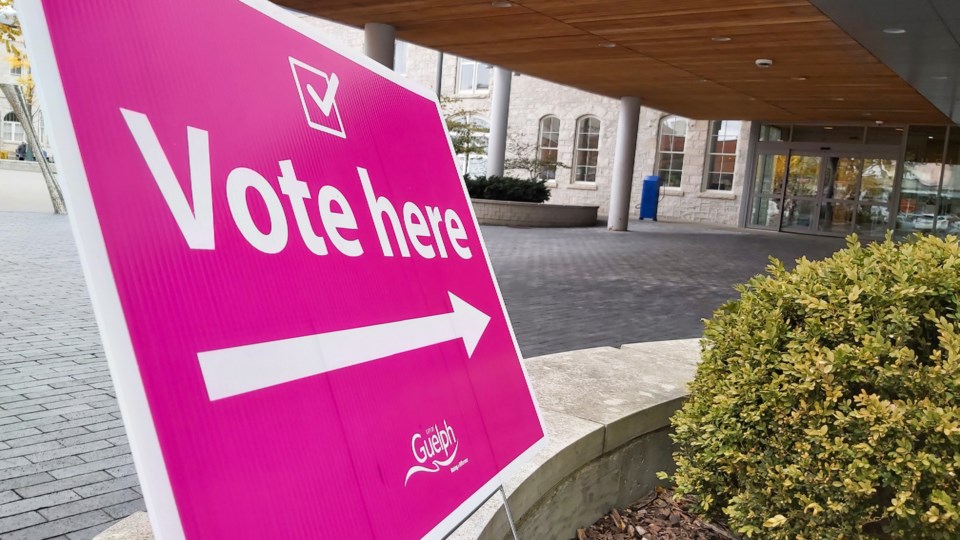Guelph may see a return of the vote-from-home initiative in 2026, along with the resurrection of online voting.
In a presentation to the Accessibility Advisory Committee (AAC) this week, city staff declared a pilot vote-from-home project offered for the first time during last year’s election a “success” and noted online voting will be considered as an accessible option for the next municipal election.
“Ultimately, we must do as council directs,” said Carrie Murray Sprague, the city’s council and committee coordinator.
Nearly a dozen people used the vote-from-home option during last fall’s municipal election.
“We found that this went very smoothly and we’re hoping it’s something council will approve for the 2026 election,” Murray Sprague told the committee. “Should they do that, we’re going to try to have some more targeted communication to try and hit more people that this could be beneficial for.”
However, Lorelei Root, AAC chair, doesn’t feel the vote-from-home process is the way to go.
“All of the recommendations coming from this committee … and all of the delegations I’ve heard at city hall from disabled members of the community said ‘don’t do that.’ So I’m not sure why that is the decision. We have said that is not accessible enough,” Root said during Tuesday’s AAC meeting, referring to staff plans to continue the program. “If you are only going to be recommending that council move forward with one or two accessible options, we don’t feel that is an accessible enough option to be recommended.”
Last year was the first for the municipal vote-from-home project – something that’s been offered during provincial and federal elections in the past.
It was approved by council during the summer of 2021, several months after council bypassed the option of allowing online voting in favour of mail-in ballots and traditional in-person voting.
Preliminary estimates put the cost of the vote-from-home project at about $8,000, allowing 60 appointments during three days of advanced voting.
In the end, the service was used by 11 individuals at seven locations.
City council approved the use of online voting during advanced polling days for the 2014 election but nixed the idea ahead of the 2018 and 2022 contests, with privacy concerns cited as the main reason.
Turning to the other accessible voting options used last year, there were 593 requests for mail-in voter kits, which saw 464 returned on time to be counted, as well as 54 that arrived too late.
“The time that it took to prepare the vote-by-mails was far more time-consuming than we had anticipated,” Murray Sprague said, referring to the process of stuffing envelopes, sending them out and handling their return.
A scent-free and fully-masked voting station was provided on one of the advanced voting days at city hall, used by seven people. That, too, is something which can be done again, Murray Sprague said after Root pointed out it’s needed by people who are immunocompromised and shouldn’t be limited to the pandemic.
The city also ordered Braille sleeves but they didn’t arrive in time to be used, Murray Sprague said.
With an eye toward enhancements, she said staff is looking at selecting polling locations closer to transit stops, as well as hosting a “super poll” at city hall where all accessible services are available. Increased worker training on accessible voting equipment is also planned.
